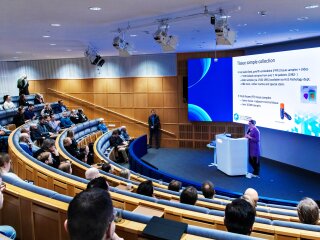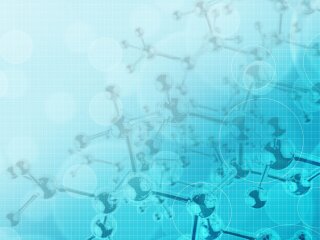The joint project between the University of Helsinki and Orion Pharma combines the latest chemical methods with machine learning – that is, AI – in research into new pharmaceutical ingredients. “The goal is to optimise pharmaceutical development so that new, effective and safe pharmaceutical ingredients can be made available to patients more rapidly,” says Julius Sipilä, Discovery Data Technology Lead at Orion’s R&D.
The study seeks to optimise pharmaceutical syntheses and identify more efficient ways to prepare new pharmaceutical ingredients. At the same time, the goal is to pave the way for a new type of education for future chemists, so they will be better able to combine new methods in machine learning and synthesis technology.
Higher speed and accuracy through computing power
AI will be used to support chemists, because their task is complex and demanding. “When we are developing new pharmaceutical ingredients, we have to synthesise a specific compound for the first time ever in the whole world. To begin with, the synthesis route needs to be designed. This consists of multiple reactions, and each of these must be successful. Precursors, reagents, catalysts, solvents, temperatures and volumes must be selected for each reaction. There are many variables, and each reaction involves millions of options,” Sipilä explains.
The study uses all the reaction data that has been accumulated during previous projects. “We are trying to use data, both from our own projects and publicly available reaction databases, as effectively as possible and process it for machine learning. Then we will use the data to aid experimental chemistry.”
Sipilä says that optimisation cannot be carried out until the first successful reactions have been conducted and the new ingredient is ready for the first tests. When the effectiveness of a new pharmaceutical ingredient is being tested, the quantity required grows rapidly.
“The quantity needed increases quickly, by thousands of times. This is when the synthesis route must be optimised as efficiently as possible and machine learning is needed. The first reactions provide data to determine what is working and what is not. Then the machine suggests which optimisation experiment should be conducted next. Compared with chemists working without such a tool, we can proceed more quickly to sufficiently effective reactions by using AI.”
Broader impacts on Orion’s studies
This study is part of something much larger, as new methods based on machine learning are an integral part of modern pharmaceutical research at all its stages, from identifying disease mechanisms to clinical trials. In recent years, Orion has started several projects that use in-house and public data with the help of machine learning. Many projects have been launched with universities and various corporate partners.
“Many forms of development work in using machine learning are needed so that we can offer interesting projects for students writing their thesis, for example,” says Sipilä.
Sipilä sees the project as a good example of what kind of researchers will be needed in the future. “Chemists must be able to use various methods, which calls for new patterns of thinking.”
The benefits for medicine are clear. “The rapid development of new medicines is important for patients. In addition, the optimisation of reactions reduces errors and waste. This also enables us to reduce environmental impacts,” says Sipilä.











